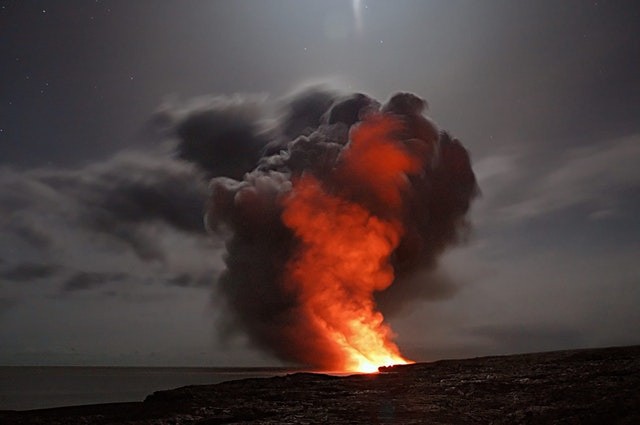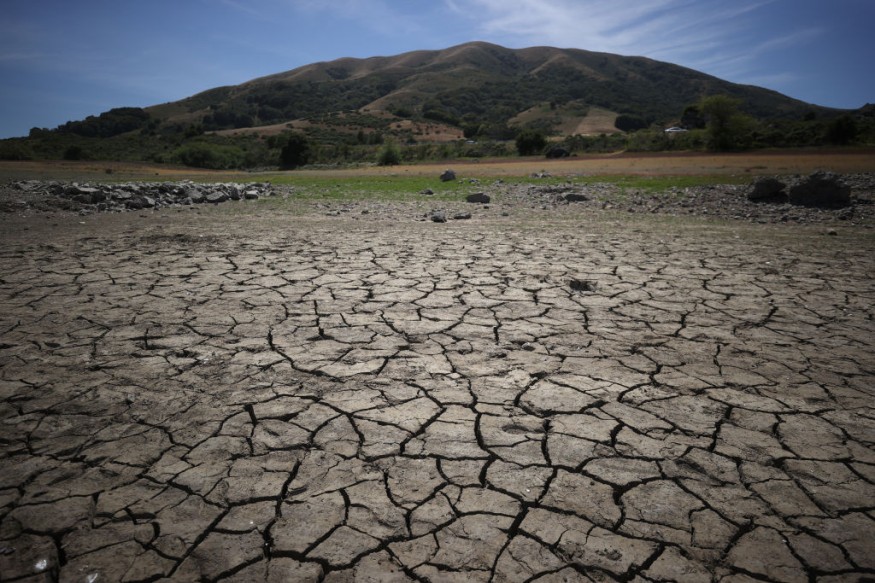In recent days, now-homeless survivors of Oregon's Bootleg fire examined their charred neighborhoods, hundreds gathered in a Colorado tunnel seeking refuge from a mudslide, and flames and landslides throughout the Eastern Hemisphere forced evacuations and claimed lives.
These and other consequences of human-caused climate change are being debated in the United States Senate, which is considering an infrastructure package that is virtually devoid of its original aspirations to address climate change.
Disasters All Over the US

"We have droughts, fires, and smoke west of the Mississippi, and flooding east of the Mississippi," Anne Golden, whose house was destroyed by the Bootleg Fire, told the New York Times. "It's biblical. So it's basically like the plague and everything."
Mudslides were triggered by three days of heavy rains in Colorado, and they cascaded down a hillside scorched by the Grizzly Creek wildfire last year. Boulders blocked parts of I-70, stranding travelers, including more than 100 who were forced to sleep in their cars overnight.
Wildfires are blazing throughout the Mediterranean, driven by dry heat related to climate change, notably on the Italian peninsula and in Sicily.
"The animals are on fire," Kacarlar resident Muzeyyan Kacar told CNN, adding that at least eight people had perished in Turkey's more than 100 fires. Closures and evacuations were also forced across Greece due to wildfires and severe temperatures.
Related Article : Earth's Vital Signs are Worsening and Many are Not Paying Attention
In the far east, a landslide in northern India caused by strong monsoon rains killed at least seven people. Ved Prakash, a Rajouri resident, told Reuters, "I am 58 years old, and I have never witnessed such a catastrophic flood in my life."
"Welcome to the world of global warming!" Reuters spoke with George Papabeis, a Greek-American visitor in Athens.
Climate-Related Disasters

António Guterres, speaking at the inaugural Climate Vulnerable Finance Summit of 48 nations structurally vulnerable to climate-related disasters, said they required assurances that financial and technical assistance would be forthcoming.
"To re-establish confidence, wealthy nations must now explain how they will successfully deliver $100 billion in climate money to developing countries every year, has pledged more than a decade ago," he added.
The UN head stated that the most vulnerable nations must be appropriately assisted to get the "world back on its feet," re-establish government collaboration, and recover from the pandemic in a climate-resilient manner.
In Need of a Detailed Strategy
Mr. Guterres requested a detailed strategy to set climate financing objectives by 2025, which he vowed to stress to the G20 finance ministers at their meeting this week.
He went on to say that development financing institutions play an essential role in assisting nations in the short term and that they will either enable low-carbon, climate-resilient recovery or entrench them in high-carbon, business-as-usual, fossil-fuel-intensive expenditures. But, he stated, "We cannot allow this to happen."
Inevitable Disasters
The Secretary-General emphasized that the present climate effects - already at 1.2 degrees Celsius over pre-industrial levels - provide a preview of what is to come: more prolonged droughts, severe and amplified weather events, and "horrific floods."
For more environmental news, don't forget to follow Nature World News!
© 2025 NatureWorldNews.com All rights reserved. Do not reproduce without permission.





